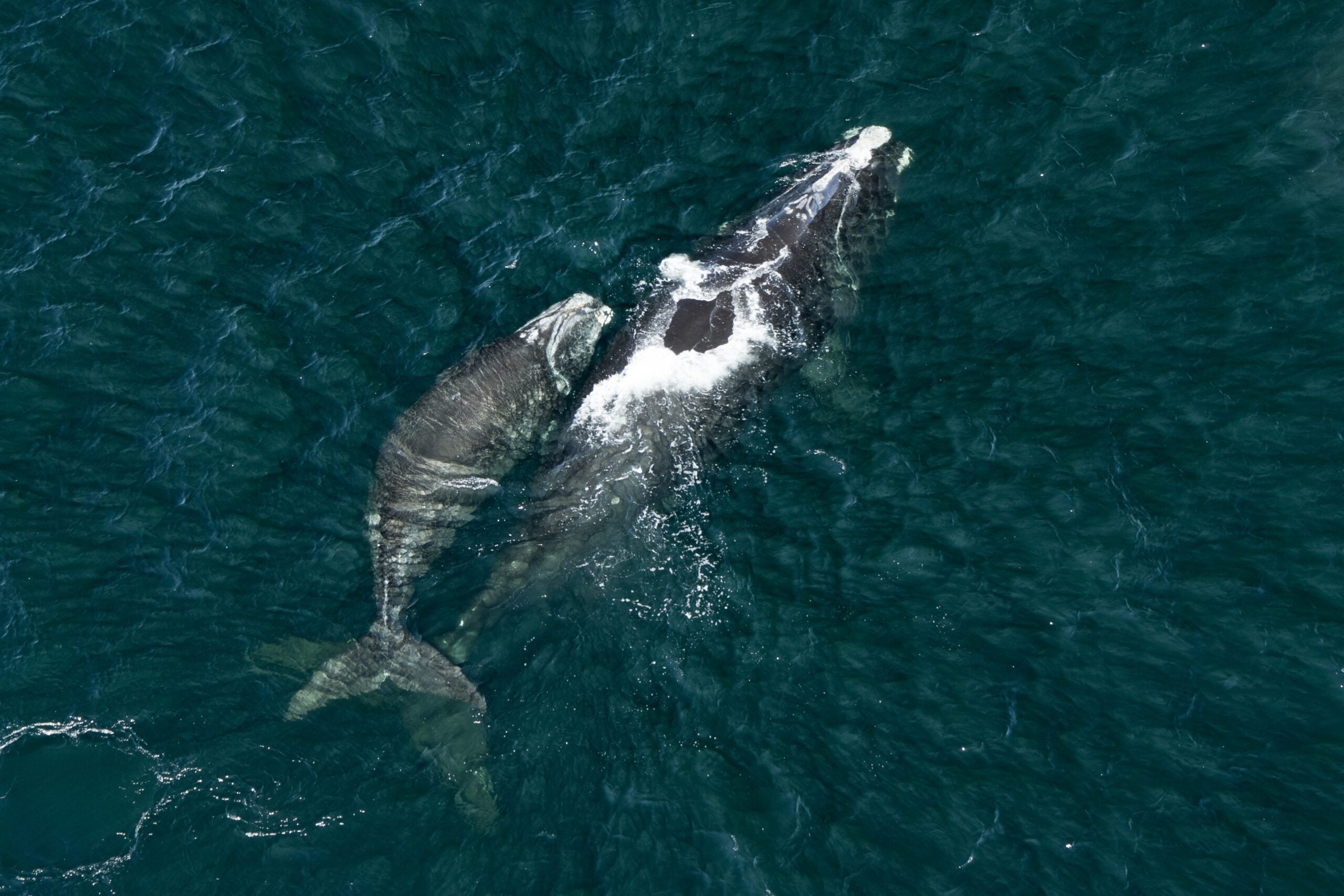February 23, 2021
New report finds voluntary slowdown meant to protect endangered whales is ineffective
Estimated reading time: 0 minutes
Following a season-long investigation, an Oceana Canada report released today, The Edge of Extinction, reveals that roughly two-thirds of vessels in the Cabot Strait did not follow the voluntary slowdown put in place to protect one of the most endangered species in the world – North Atlantic right whales. Despite persistent non-compliance by vessels travelling in this area, the government has announced that the measure will remain voluntary in 2021. But voluntary measures don’t work.
At least 33 North Atlantic right whales have died since 2017, 21 of them in busy Canadian waters. Of the 10 deaths in Canada for which there was a known cause, eight were related to vessel strikes. Research shows that slower speeds can help save right whales: the slower the vessel, the higher the likelihood of a whale surviving a collision.
The busy Cabot Strait between Nova Scotia and Newfoundland is the primary gateway to the Gulf of St. Lawrence, the St. Lawrence River and major ports such as the Port of Montreal. Recent acoustic data has found that right whales enter and exit the Gulf of St. Lawrence multiple times, travelling through the Strait to spend the summer feeding in the Gulf. This includes slow-moving mothers and their newborn calves, which are especially susceptible to vessel strikes because they spend more time near the surface to rest, feed and socialize.

A North Atlantic right whale and her calf swim near the surface in Canada’s Gulf of St. Lawrence. Photo credit: Nick Hawkins
With so many vessels traveling in and out of the Cabot Strait alongside right whales, the question is not if another whale will die from a vessel strike, but when. If stronger protection measures are implemented now, it is still possible to turn the tide and change the fate of these critically endangered whales. The new measures for 2021 announced this month need to go further. The government must do everything possible to protect these whales, including putting in place a mandatory, season-long slowdown in the Cabot Strait.
These whales can’t protect themselves, but you can help. Together we can make slower speeds the law, defend the few remaining mothers and calves and help one of the world’s most endangered species.
Help us protect right whales by signing the petition today, before it’s too late >>

